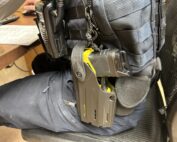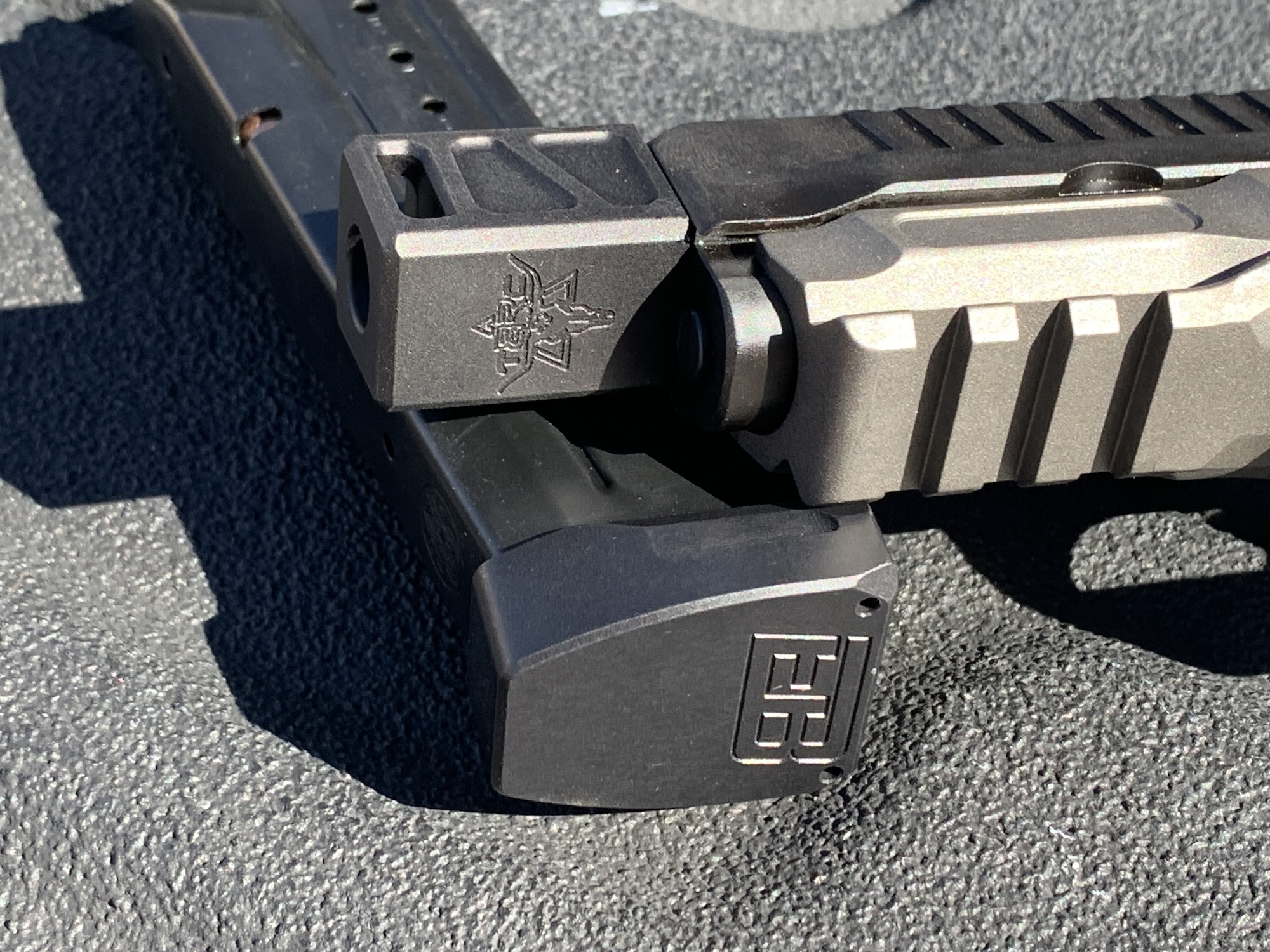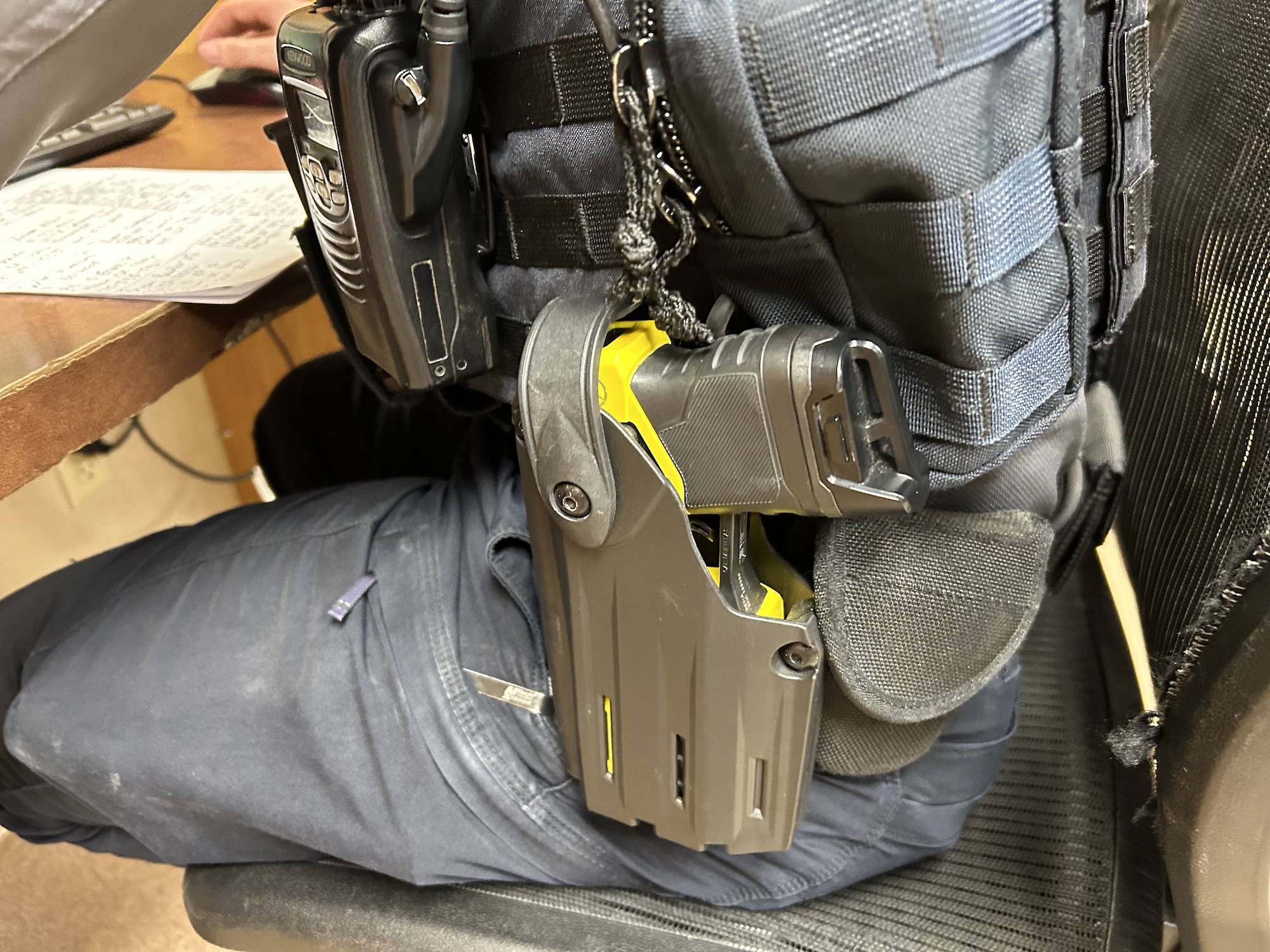
DISABLE-neck
Beware The Hidden Traps.
Virtually no one enters the field of law enforcement worrying about suffering a career-ending injury or illness. However, nearly everyone who puts on the uniform believes if something catastrophic were to happen, their employer would handle any claim fairly and provide disability retirement benefits in recognition of their sacrifice. Unfortunately, in recent years, states and municipalities faced with budgetary constraints and other problems have become far less likely to grant benefits (especially line of duty or accident disability pensions) to worthy applicants. This leaves many deserving retirees without the means to support themselves and their families. For those hurt and forced to apply for benefits, be forewarned the process is far more difficult than might be expected.
What’s An Accident?
In order to obtain an accident disability pension, an officer must establish both the legal and medical components of a claim. First, the officer must demonstrate the circumstances surrounding the injury meet the legal definition of an “accident,” which isn’t necessarily the same as the general definition. And depending on where an officer is employed, the legal definition of “accident” may differ. In New York, for example, courts have defined an accident as a “sudden fortuitous mischance, unexpected, out of the ordinary, and injurious in impact” — a complicated and difficult-to-digest statement that’s given rise to a great deal of litigation.
The definition traces its roots to a case where a member of the New York City Police Department (NYPD) claimed injury to his back while stretching himself over the front of a car to secure a parking ticket under the vehicle’s windshield wipers. The court ruled that in the absence of some unanticipated, external event which caused an injury, there was no accident and, therefore, no right to an accident disability pension. While this decision is, at least, understandable, New York tried to leverage its impact and deny a wide range of applications as “not qualified” based on the concept of “foreseeability.” If, for example, a police officer was shot in the line of duty, the argument became that this was not “unexpected,” since officers are shot from time to time and, therefore, the injurious event was not unexpected.
This perverse interpretation was ultimately rejected in NYPD cases, but still bedevils employees of the New York State Employees Retirement System where the foreseeability rule is routinely used to deny benefits. Taken to its illogical extreme, a police officer injured as the result of slipping on a wet bathroom floor in his precinct or barracks may stand a better chance of receiving an accident disability pension than one hurt struggling with a perpetrator at a crime scene.
Details & Accuracy Matter
When injuries occur, it is critical police officers know the rules in their individual jurisdictions and take great care to submit accurate and detailed reports when injured. Failure to include all the relevant circumstances detailing how the injury occurred and why, may have serious consequences down the road.
After establishing a qualifying accident has occurred, an applicant must then demonstrate he is permanently disabled for the performance of full duty. While the evaluation of the medical evidence would seemingly be an objective exercise, those of us who represent police officers in these proceedings know the process is often anything but objective and the standards used to determine disability are ever-changing.
For example, the most common claim of disability for police officers involves an injury to the spine, either in the lower lumbar region or cervical (neck) area. As recently as 15 years ago, an officer who presented an MRI or CT scan documenting significant damage (usually in the form of one or more herniated discs), supported by evidence of nerve damage (usually in the form of electrodiagnostic studies) and objective report(s) from treating specialists, stood an excellent chance of being deemed permanently disabled for the performance of strenuous police duty. However, at some point, almost every one of these cases went from routinely approved to routinely denied unless the applicant underwent spinal surgery in an effort to address his symptoms. Presumably, submitting to surgery (although it wouldn’t justify a return to full duty status even if successful), would demonstrate to the Medical Board, who routinely reviews applications, the officer’s condition was severe enough to justify the disability award. However, in the past several years, the standard changed again.
Now, boards routinely deny cases which include spinal surgery, arguing that “successful” procedures, even involving spinal fusion or the implantation of hardware to stabilize the lower back or neck regions, negate the necessity of awarding derived from turning down most applications based on a spinal injury may be the real motivation behind the drastic change in the evaluation of these cases. Any potential applicant for benefits should understand this going in.
Bad Actor?
Medical boards also reject a great many otherwise worthy cases on the basis of an officer’s performance during physical examinations. Applicants who are unprepared for these critical evaluations often create the impression they are exaggerating their symptoms, significantly undermining the merits of their own cases in the process. Board physicians are usually well-trained to ferret out potential malingerers, but often “catch” worthy and fully disabled individuals in their net simply because the injured officers don’t know how to handle the most important part of their application process.
In evaluating a claim, three types of evidence are considered. Subjective evidence (“My back hurts”) is of little or no value to a board doctor. Objective evidence (MRI films, narrative reports, etc.) plays a significant role. Of paramount importance, however, is the clinical evidence (what the physician is able to determine from his own examination), and an applicant who doesn’t know “how to be examined” is often at a fatal disadvantage.
Any police officer forced to file an application for a disability retirement benefit should be afforded every possible consideration by the administrative agency or panel responsible for reviewing the application. It would be naïve, however, to think the process will be entirely objective or fair and therefore, it’s incumbent on anyone entering the process to obtain a full and complete understanding of both the legal and medical standards involved. As in most police work, careful preparation is often the key to success.
Attorney Michael Kalmus, of Mandelbaum Salsburg (www.msgld.com), has more than 25 years experience as an employment attorney. He can be reached at (973) 736-4600, ext. 117 or [email protected]
By Michael Kalmus
Order Your Printed Copy Of The American COP May 2014 Issue Today!
Download A PDF Of The American COP May 2014 Issue Now!















